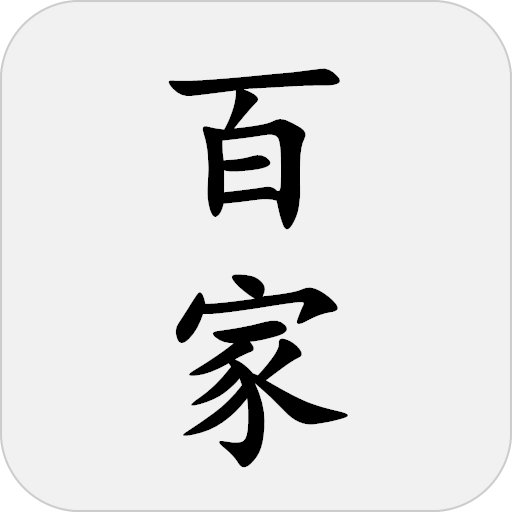百家姓 (The Hundred Family Surnames): A Window into Chinese Heritage
China’s long and rich history is intertwined with cultural artifacts that have shaped its identity. One of the most fascinating of these is the 百家姓 (bǎi jiā xìng), also known as The Hundred Family Surnames. This classic text first composed during the early Northern Song Dynasty (960–1127) carries far more than a simple list of names. It holds stories, traditions, and legacies that continue to resonate in modern Chinese society.
This blog will take you through the origins, significance, and influence of 百家姓, while pointing out its lasting impact on present-day China. And who knows? You might just find some resources to trace your own family name.
What is 百家姓 and Why Was It Created?
百家姓, created during the early Northern Song Dynasty, is a poetic and rhythmic text that compiles hundreds of Chinese surnames. Originally, it contained 411 surnames (444 now with single-character names and 60 compound-character names), making it an important educational and cultural work of its time. Together with Three Character Classic (三字经) and the Thousand Character Classic (千字文), 百家姓 was considered one of the "Three Primary Texts" (三大蒙学读物), essential for elementary learning in ancient China.
Key features of 百家姓 include its easy-to-remember rhyming structure and its accessibility, which made it a staple learning tool for children. After all, what better way to teach language, cultural heritage, and social order than through rhythmic recitation?
Curiously, the listed surnames are not ordered by population size—unlike China's modern census. Instead, the opening of the rhyme—"赵钱孙李" (Zhao, Qian, Sun, Li)—reflected the political and regional realities of its time. The Zhao surname was that of the Song royal family, while the following surnames, Qian, Sun, and Li, represented important noble families from Wu-Yue and Southern Tang states during the Five Dynasties and Ten Kingdoms period.
The Historical Significance of 百家姓
百家姓 is more than just a list of surnames; it is a cultural treasure that reflects the societal values and structures of ancient China. During the Song Dynasty and beyond, a person’s surname carried deep implications about their lineage, social status, and regional identity. 百家姓 provided children with an education not just in language but in an understanding of family heritage and genealogy, both crucial to traditional Chinese values like filial piety and ancestry worship.
An Educational Tool
For centuries, 百家姓 served as an introduction to Chinese characters for children. Its rhythmic and repetitive nature made learning to write and read easier while simultaneously teaching historical significance. It was an early form of cultural literacy, helping young learners bridge language with the customs of their elders.
A Snapshot of Regional Hierarchy
During its composition, 百家姓 became a way to document and honor surnames important in specific regions. The Northern Song period saw the consolidation of power across various territories, and this list serves as a subtle echo of that political landscape.
Top Surnames in 百家姓
While 百家姓 lists hundreds of names, some have come to stand out over time, either through prominence in the text or sheer population numbers today. Here’s a quick look at some of the most notable names in 百家姓:
According to recent studies, around 100 surnames account for 85% of China’s population. Names like Wang, Li, and Zhang remain leaders in sheer numbers, showing the lasting impact of names listed in 百家姓.
Stories and Legends Behind Famous Surnames
Every name tells a story, and many surnames in 百家姓 have fascinating origins. Some connect to ancient mythology, others to legendary historical figures.
赵 (Zhao): The Royal Lineage
The surname Zhao holds special significance—it was the family name of the Song emperors. Historically, the importance of Zhao is reflected in its placement as the first name in 百家姓, asserting its royal dominance.
钱 (Qian): The Merchants and Kings of Wu-Yue
The Qian family played a prominent role during the Five Dynasties period. Leaders like Qian Liu, who founded the Wu-Yue Kingdom, strengthened their names as symbols of commerce, governance, and cultural prosperity.
孙 (Sun): Legends of Strategy
Sun is famously associated with Sun Tzu, the revered military strategist and author of The Art of War. This connection lends a legendary quality to the Sun family name, especially in intellectual and martial domains.
李 (Li): A Poet’s Legacy
The Li surname is linked to many scholars and poets, most notably Li Bai (Li Po), one of China’s most acclaimed poets. The name itself became a symbol of artistic brilliance.
Influence of 百家姓 on Modern Society
百家姓’s cultural footprint is immense, even today. While no longer used as a primary education tool, it still symbolizes an important gateway to Chinese heritage.
Inspiring Genealogy Exploration
With growing interest in ancestry and lineage, many people refer to 百家姓 to trace their roots and understand their family's history. It’s a great starting point for those looking to reconnect with their heritage.
A Continued Cultural Symbol
百家姓 remains a beloved cultural artifact, often referenced in popular culture, literature, and even internet memes. Its legacy as a unifying force for linguistic and cultural education ensures its continued relevance.
Practical Uses
Even beyond its historical and educational value, many businesses and schools use 百家姓 as inspiration. It’s a reminder of how deeply rooted one's surname can be in identity.
Resources for Tracing Your Family Name
Curious about your surname? Here are some ways to start your exploration:
百家姓 is also widely available online in annotated and translated formats, perfect for those who want to dig deeper into its meanings.
Where Tradition Meets Modern Identity
百家姓 is far more than a tool for learning surnames. It is a document of tradition, a reflection of history, and a touchpoint for modern identity. By exploring its cultural significance and applying its lessons in our understanding of names today, we can bridge the gap between the past and the present.
Whether you’re a language enthusiast, a history buff, or someone seeking to trace your own surname's roots, 百家姓 remains an invaluable resource.
Did this inspire you to explore your own family lineage? Share a comment below or send us your findings—we’d love to know which surname story captured your heart!


| Name | 百家姓 |
|---|---|
| Publisher | 國語工作室 |
| Genre | Books Reference |
| Size | 22MB |
| Version | 1.9.1 |
| Update | March 4, 2025 |
| Get it On | Play Store |
| Report | Report Apps |
Preview
百家姓 (The Hundred Family Surnames): A Window into Chinese Heritage
China’s long and rich history is intertwined with cultural artifacts that have shaped its identity. One of the most fascinating of these is the 百家姓 (bǎi jiā xìng), also known as The Hundred Family Surnames. This classic text first composed during the early Northern Song Dynasty (960–1127) carries far more than a simple list of names. It holds stories, traditions, and legacies that continue to resonate in modern Chinese society.
This blog will take you through the origins, significance, and influence of 百家姓, while pointing out its lasting impact on present-day China. And who knows? You might just find some resources to trace your own family name.
What is 百家姓 and Why Was It Created?
百家姓, created during the early Northern Song Dynasty, is a poetic and rhythmic text that compiles hundreds of Chinese surnames. Originally, it contained 411 surnames (444 now with single-character names and 60 compound-character names), making it an important educational and cultural work of its time. Together with Three Character Classic (三字经) and the Thousand Character Classic (千字文), 百家姓 was considered one of the “Three Primary Texts” (三大蒙学读物), essential for elementary learning in ancient China.
Key features of 百家姓 include its easy-to-remember rhyming structure and its accessibility, which made it a staple learning tool for children. After all, what better way to teach language, cultural heritage, and social order than through rhythmic recitation?
Curiously, the listed surnames are not ordered by population size—unlike China’s modern census. Instead, the opening of the rhyme—”赵钱孙李” (Zhao, Qian, Sun, Li)—reflected the political and regional realities of its time. The Zhao surname was that of the Song royal family, while the following surnames, Qian, Sun, and Li, represented important noble families from Wu-Yue and Southern Tang states during the Five Dynasties and Ten Kingdoms period.
The Historical Significance of 百家姓
百家姓 is more than just a list of surnames; it is a cultural treasure that reflects the societal values and structures of ancient China. During the Song Dynasty and beyond, a person’s surname carried deep implications about their lineage, social status, and regional identity. 百家姓 provided children with an education not just in language but in an understanding of family heritage and genealogy, both crucial to traditional Chinese values like filial piety and ancestry worship.
An Educational Tool
For centuries, 百家姓 served as an introduction to Chinese characters for children. Its rhythmic and repetitive nature made learning to write and read easier while simultaneously teaching historical significance. It was an early form of cultural literacy, helping young learners bridge language with the customs of their elders.
A Snapshot of Regional Hierarchy
During its composition, 百家姓 became a way to document and honor surnames important in specific regions. The Northern Song period saw the consolidation of power across various territories, and this list serves as a subtle echo of that political landscape.
Top Surnames in 百家姓
While 百家姓 lists hundreds of names, some have come to stand out over time, either through prominence in the text or sheer population numbers today. Here’s a quick look at some of the most notable names in 百家姓:
- 赵 (Zhao): The Song Dynasty’s imperial family’s surname; this was placed at the top of the list to emphasize its importance.
- 钱 (Qian): The family name of the Kings of Wu-Yue, an influential kingdom in the South.
- 孙 (Sun) and 李 (Li): Prominent noble families with historical prestige.
- 王 (Wang) and 张 (Zhang): Common today, these surnames represent some of the largest population groups in China.
According to recent studies, around 100 surnames account for 85% of China’s population. Names like Wang, Li, and Zhang remain leaders in sheer numbers, showing the lasting impact of names listed in 百家姓.
Stories and Legends Behind Famous Surnames
Every name tells a story, and many surnames in 百家姓 have fascinating origins. Some connect to ancient mythology, others to legendary historical figures.
赵 (Zhao): The Royal Lineage
The surname Zhao holds special significance—it was the family name of the Song emperors. Historically, the importance of Zhao is reflected in its placement as the first name in 百家姓, asserting its royal dominance.
钱 (Qian): The Merchants and Kings of Wu-Yue
The Qian family played a prominent role during the Five Dynasties period. Leaders like Qian Liu, who founded the Wu-Yue Kingdom, strengthened their names as symbols of commerce, governance, and cultural prosperity.
孙 (Sun): Legends of Strategy
Sun is famously associated with Sun Tzu, the revered military strategist and author of The Art of War. This connection lends a legendary quality to the Sun family name, especially in intellectual and martial domains.
李 (Li): A Poet’s Legacy
The Li surname is linked to many scholars and poets, most notably Li Bai (Li Po), one of China’s most acclaimed poets. The name itself became a symbol of artistic brilliance.
Influence of 百家姓 on Modern Society
百家姓’s cultural footprint is immense, even today. While no longer used as a primary education tool, it still symbolizes an important gateway to Chinese heritage.
Inspiring Genealogy Exploration
With growing interest in ancestry and lineage, many people refer to 百家姓 to trace their roots and understand their family’s history. It’s a great starting point for those looking to reconnect with their heritage.
A Continued Cultural Symbol
百家姓 remains a beloved cultural artifact, often referenced in popular culture, literature, and even internet memes. Its legacy as a unifying force for linguistic and cultural education ensures its continued relevance.
Practical Uses
Even beyond its historical and educational value, many businesses and schools use 百家姓 as inspiration. It’s a reminder of how deeply rooted one’s surname can be in identity.
Resources for Tracing Your Family Name
Curious about your surname? Here are some ways to start your exploration:
- Online Genealogy Platforms (like MyHeritage or Baidu Genealogy)
- Historical Texts and Archives, especially from local government agencies.
- Family Gatherings and Oral Traditions – Some of the richest information might be in stories from your oldest relatives!
- Libraries and Cultural Centers – Many libraries around the world have Chinese genealogy resources tailored to understanding surnames.
百家姓 is also widely available online in annotated and translated formats, perfect for those who want to dig deeper into its meanings.
Where Tradition Meets Modern Identity
百家姓 is far more than a tool for learning surnames. It is a document of tradition, a reflection of history, and a touchpoint for modern identity. By exploring its cultural significance and applying its lessons in our understanding of names today, we can bridge the gap between the past and the present.
Whether you’re a language enthusiast, a history buff, or someone seeking to trace your own surname’s roots, 百家姓 remains an invaluable resource.
Did this inspire you to explore your own family lineage? Share a comment below or send us your findings—we’d love to know which surname story captured your heart!
Download 百家姓
You are now ready to download 百家姓 for free. Here are some notes:
- Please check our installation guide.
- To check the CPU and GPU of Android device, please use CPU-Z app








